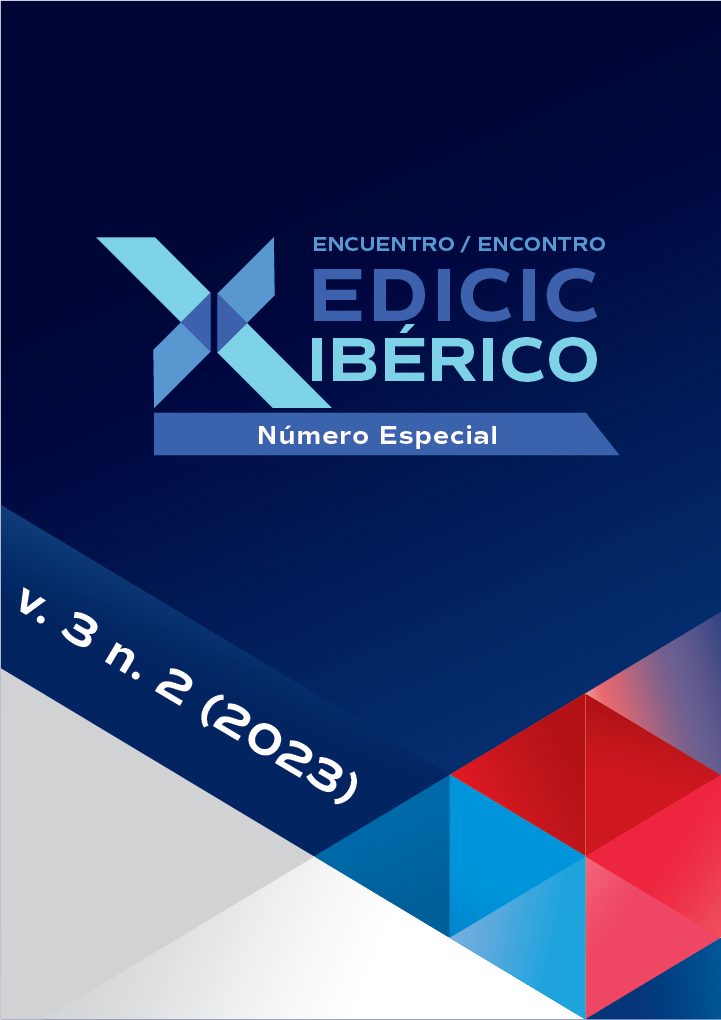Observatory for institutional care of children and adolescents in the state of Rio de Janeiro: its role in information production, dissemination, and access as a resource for public policy development
DOI:
https://doi.org/10.62758/re.v3i2.271Keywords:
Institutional Care, Information Science, Observatories, Public Policies, Transparency and Democratic ParticipationAbstract
This article presents Observa Abrigo, an observatory dedicated to improving the institutional care system for children and adolescents in the State of Rio de Janeiro, Brazil. The study explores the importance of public policy observatories as tools to promote transparency, democratic participation, and social control. To achieve this objective, the research characterizes institutional care in Brazil, discusses the role of public policy observatories, and highlights the contribution of Information Science in this context. Furthermore, the article describes the actions taken by Observa Abrigo in the formulation, implementation, monitoring, and evaluation of institutional care policies. The study emphasizes the ongoing need for improving the quality of information related to these policies to strengthen the fundamental rights of children and youth in the country.
References
Brasil (1988). Constituição da República Federativa do Brasil. Brasília: Senado Federal.
________ (1990). Lei nº 8.069, de 13 de julho. Dispõe sobre o Estatuto da Criança e do Adolescente (ECA). http://www.planalto.gov.br/ccivil_03/leis/l8069.htm.
________ (1991). Lei Federal n. º 8.159, de 8 de janeiro. Dispõe sobre a política nacional de arquivos públicos e privados.
________ (2009). Orientações Técnicas: serviços de acolhimento para criança e adolescentes. Brasília: CNDCA. http://www.mds.gov.br/cnas/noticias/orientacoes_tecnicas_final. pdf.
________ (2011). Lei n. 12.527, de 18 de novembro. Lei de Acesso à Informação.
________ Conselho Nacional dos Direitos da Criança e do Adolescente. CONANDA. (2003). Resolução 113 de 19 de abril de 2006. Brasília, 2006.
Bezerra, N. D. M. (2018). Observatórios de políticas públicas: um estudo sobre a mobilização de conhecimentos para a democratização da elaboração e controle das políticas. Doctoral dissertation. Portugal: Universidade de Coimbra.
Cinacchi, Giovanna Bueno (2023). População em situação de rua: avaliação de serviços e ações no Município de Niterói. Doctoral dissertation. Niterói: Universidade Federal Fluminense.
Dye, T. R. (1972). Understanding Public Policy (Englewood Cliffs: PrenticeHall). 1972.
Köptcke, Luciana (2007). O Observatório de Museus e Centros Culturais: uma agenda de pesquisa para a democracia cultural. Rio de Janeiro Fiocruz. http://www.fiocruz.br/omcc/media/artigoUNIRIO.pdf
Lakatos, Eva Maria & Marconi, Marina de Andrade. (2003). Fundamentos de metodologia científica. São Paulo: Atlas.
Macêdo, D. J., Maricato, J. de M., & Shintaku, M. (2021). Observatórios: reflexões sobre os conceitos e aplicações em Ciência, Tecnologia e Inovação e relações com a Ciência da Informação. Revista Brasileira de Biblioteconomia e Documentação, 17, 1-21.
Schommer, P. C., Nunes, J. T., & Moraes, R. L. (2012). Accountability, controle social e coprodução do bem público: a atuação de vinte observatórios sociais brasileiros voltados à cidadania e à educação fiscal. Publicações da Escola da AGU: Gestão Pública Democrática, 4(18), 229-258.
Schudson, Michael (2010). Political observatories, databases & news in the emerging ecology of public information. Daedalus, 139(2), 100-109. DOI: https://doi.org/10.1162/daed.2010.139.2.100
Valentim, M. L. P. (2004). Gestão da informação e gestão do conhecimento: Especificidades e convergências. Londrina: Infohome. 2004.
Downloads
Published
How to Cite
Issue
Section
License
Copyright (c) 2023 Revista EDICIC

This work is licensed under a Creative Commons Attribution 4.0 International License.
The Association holds the copyright of the texts it publishes and, therefore, adopts a Creative Commons License, CC BY 4.0 DEED Attribution 4.0 International (https://creativecommons.org/
You are free to:
- Share: copy and redistribute the material in any medium or format for any purpose, even commercially.
- Adapt: remix, transform, and build upon the material for any purpose, even commercially.






